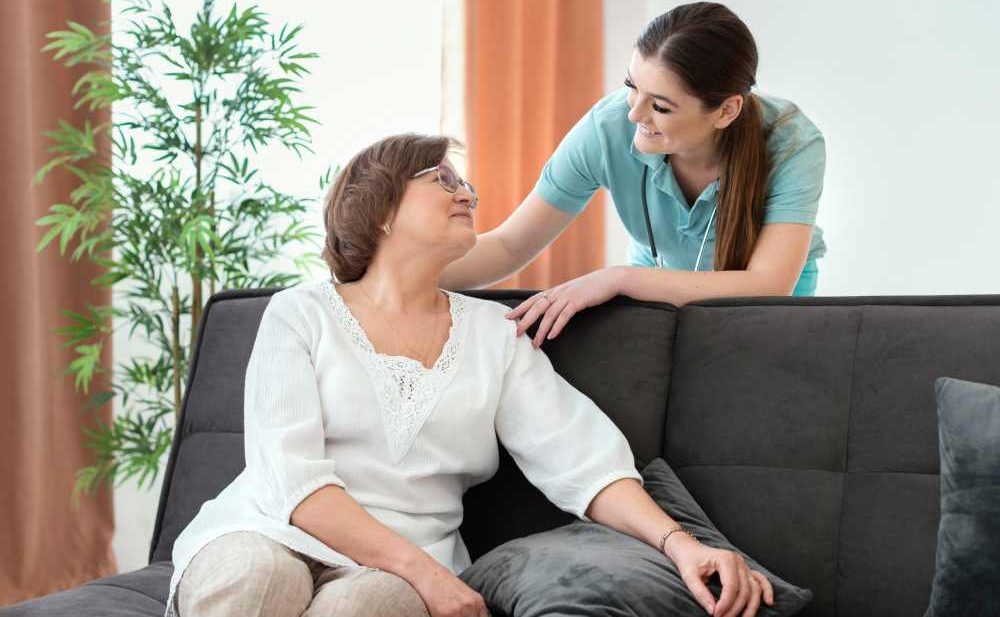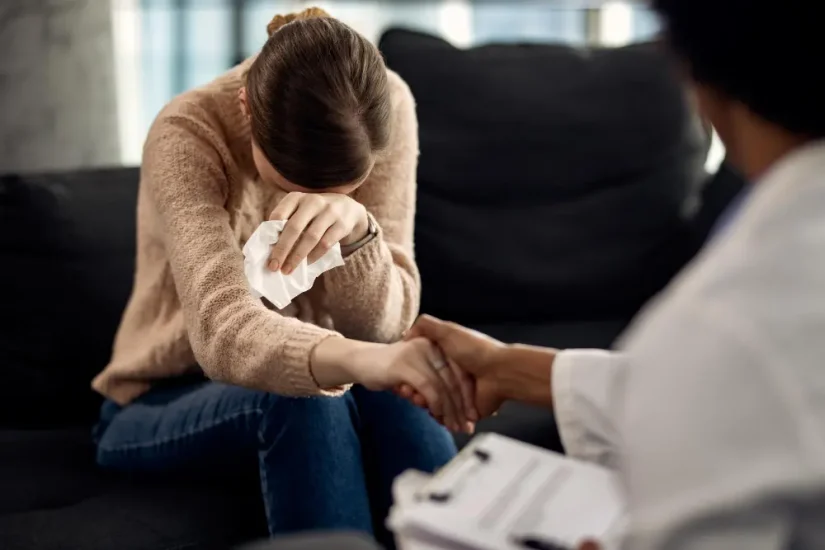- November 7, 2025
- by Harshita Bajaj
- Trauma
Globally, mental health is at a tipping point. It has single-handedly become one of the most important issues that need to be discussed at a state, national, and global level. The rising rate of mental health disorder is worrying not only for nations and individuals, but the repercussions it has in terms of economic loss as well.
Today, almost 97 million people suffer from some mental disorder or the other. It is also expected that by 2030, the burden on this mental health is going to cost more than $16 trillion. However, primary health care is not just falling behind but failing significantly.
The lack of mental health care to the ones who need it the most puts the question of accessibility and affordability at the forefront. Today, mental health is not something that can be solved through therapy alone. There is a need to integrate the digital transformation into the healthcare sector as well. Blended care, also known as hybrid therapy or integrated mental health care, is the future of therapeutic support. It combines traditional face-to-face therapy with innovative digital mental health interventions.
Is Only Digital or In-Person Therapy Enough?
Many people still consider in-person psychotherapy to be the gold standard as it offers trust, human presence, and special focus. However, it is resource intensive and can be unaffordable and inaccessible to many.
At the other end of the spectrum are fully digital means of mental health care, but these also fail to sustain engagement and adapt to the complexity of the individual’s therapy journey.
Hence, there is a need to engage people and allow for deeper and meaningful changes. Therefore, blended care addresses the shortcomings of both these methods by combining and integrating their strengths and advantages. This has led to a digital care pathway with human-led therapy that bridges the gap between access and personalization.
What is Blended Care in Mental Health?
As discussed above, blended care is a therapeutic approach that integrates in-person counseling sessions with mobile mental health apps, online therapy modules, telehealth, as well as other digital health technologies.
This is a hybrid mental health model that looks to extend treatment and therapy beyond the four walls of a clinic and providing continuous support for the betterment of the individual’s life. Blended care is not a replacement of traditional therapy, but rather an enhanced way of therapeutic relationship through the use of technology. It aims to create more accessible and flexible treatment environment.
The key components of blended mental health care are:
- Traditional therapy sessions- the individual maintains regular in-person or video therapy sessions with licensed mental health professionals such as psychologists, psychiatrists, licensed counselors, or clinical social workers.
- The digital element- technology-enhanced interventions are also used as a form of therapy such as mental health apps that help in tracking mood, online Cognitive Behavioral Therapy (CBT) modules, mindfulness and meditation apps, and symptoms monitoring platform, telehealth and remote support. Research conducted by University of Cambridge also found that video call-based cognitive behavioural therapy was as effective as in-person CBT in helping reduce symptoms across diverse groups.
- Telehealth- The use of technology is made to deliver video counseling sessions for secure messaging with therapists and also crisis support hotlines with virtual check-ins in between appointments are promoted through this form of blended care.
- Data-driven insights- Technology is also used to monitor mood tracking in real time and analyze behavioral patterns. From the previous data, progress with monitors and treatment outcomes is measured.
Benefits of Blended Care for Mental Health
- Using blended care for mental health increases accessibility as it breaks down the barriers to mental health treatment. It provides rural communities, people with mobility challenges and those with busy schedules to easily seek help when needed based on their budget and from wherever they are currently working.
- Digital interventions are also critical for emergencies as they are more available. It reduces the risk of relapse and improves treatment adherence especially for those with substance abuse disorders.
- The hybrid mode also allows for customized treatment plans that are developed based on the individual needs, lifestyle, and preferences. Patient engagement is improved drastically through active participation in the mental health recovery.
The AI Debate
While considering the question of blended care in mental health, a lot of people argue about the use of artificial intelligence for mental health. However, this is a debate that needs some discussion as it is important to use technology to augment the mental health care that is delivered to individuals, but not replace the human touch.
AI has potential to dramatically improve early detection and personalize mental health care. In the long term, it will allow us to better understand symptoms and disorders with good accuracy. But , t is important to note that while AI can predict patterns and suggest interventions, it lacks relational context, ethical judgment, and the human touch. This is why blended care architecture necessitates the use of humans along with technologies like AI to help therapists contextualize, adapt, and take responsibility for their patients.
Why Choose NABHS for Blended Care?
At North America Behavioral Health Services we follow a hybrid care model for mental health treatment by connecting you with mental health professionals who you can visit in person as well as seek guidance from online. We also provide you the right resources for continued patient engagement and improvement. Our special focus is on those suffering with substance abuse disorders. Blended care treatment and the availability of online digital interventions along with in-person support groups helps reduce the chances of relapse. We also connect you with treatment centers that believe in continued aftercare through use of digital tools.
FAQs
While there might be no certain answer if blended care is right for you, it can be ideal in these cases:
- If you want flexibility in your mental health treatment
- If you have limited access to mental health professionals in your areas
- If you want to combine traditional therapy with self-directed learning
- If you need support in between therapy sessions
- If you want a more affordable mental health option
- If you are someone suffering from addiction issues and might be at the risk of relapse.
















